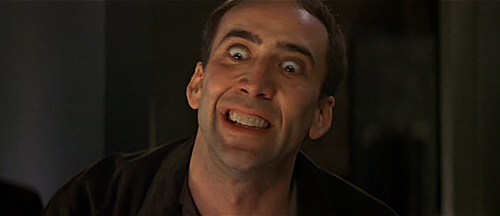We may earn money or products from the companies mentioned in this post.
A long time ago, before it was the Atomic City or the home of the world’s biggest quilt show or the place where you could see the nation’s only statue of Bruce Willis as Emmett Smith from In Country, Paducah was a simple Native American trading post on the banks of the Ohio. This was the era of our city’s namesake, Chief Paduke. Though out-of-towners may be more familiar with native sons like humorist Irvin S. Cobb, Vice President Alben W. Barkley, “Yakety Sax” composer Boots Randolph, or even world-famous dead guy Charles “Speedy” Atkins, the most well-known and beloved Paducahan among the locals is undoubtedly Chief Paduke. Tales of the Chief are passed down from generation to generation like a fertile piece of farmland or a well-constructed mobile home and shared among friends in schoolyards, barrooms, and duck blinds all over western Kentucky.
I first heard the story about Chief Paduke and his role in the creation of Duck Island from a one-armed funnel cake vendor named Gus at Barbeque on the River sometime in the late 2000s. Gus swears the the story I’m about to relate is absolutely true, but there is reason to doubt the tale’s veracity, and not just because it was told to me by a carnie who was almost certainly high on meth at the time. The biggest hurdle to believing the story is the fact that most historians agree that Chief Paduke never actually existed.* Also, the story has giant ducks and a demon and magical barbeque sauce. I guess there could have been giant magical ducks in those days, but we probably would have found some giant duck fossils or something by now.
When most people hear the name “Chief Paduke,” they assume that Paduke held a leadership role in the tribe, similar to a mayor or king. In reality, “Chief” was just an honorary title that anyone could get simply by being nominated by someone who was already a Chief. It was a lot like being a Kentucky Colonel. Paduke was from a very prominent family, so he’d probably been a Chief since childhood. His actual role in the tribe is a source of some debate. Some say he was a shaman, others say he was the village idiot, and one story names him “Vice President In Charge of Getting The Mail.” The overall consensus, though, is that Paduke’s primary role was to be as uninvolved as possible with anything even tangentially related to the material survival of the tribe.
One day while Chief Paduke was walking through the forest, he met an unusually large frog smoking a cigar. At first he thought it was Irvin S. Cobb, but then he remembered that Cobb hadn’t been born yet. Before Chief Paduke had time to come up with another guess as to the creature’s identity, the frog spoke. The creature, which Chief Paduke had no way of realizing was an evil demon called The Boondoggle, complemented Paduke on his tribe’s “nice little trading town,” but offered to reveal the secret of turning the village into one that would rival the world’s greatest metropolises, “like Rome, London, or Possum Trot.” Chief Paduke liked the idea of turning his village into a magical place like Possum Trot, but couldn’t help but suspect that such an offer would come at a great price (probably involving butt stuff). He tried to politely decline the offer, but the Boondoggle kept pressing, eventually winning our hero’s confidence.
As he drifted off to sleep later that night, Paduke was already thinking about how to follow the frog creature’s recipe for success: build a riverfront hotel. The frog demon had assured him that once a town had a riverfront hotel, Target and Ruby Tuesday’s were sure to follow. That night Chief Paduke dreamed a beautiful dream where gold rained from the sky and people from around the world flocked to his luxurious riverfront hotel. He also dreamed about butt stuff, but that was probably unrelated.
Chief Paduke knew that the men of his tribe could easily build a riverfront hotel, and building materials were plentiful in the lightly-settled wilderness of early Kentucky, but location was a problem. A riverfront hotel needed to be on the riverfront, and back in those days the riverfront was controlled by the ducks. This may not seem like an insurmountable obstacle, but in Chief Paduke’s time ducks were the size of Buicks and could swallow a man whole. Chief Paduke would need an ingenious plan to secure a location for his riverfront hotel. For the next three days, he sat on a rock and pondered.
Obviously, he eventually came up with a plan, or else this story would be completely pointless. It wasn’t long before Chief Paduke arranged for an audience with The Duck King. [Author’s Note: The Duck King’s real name is unpronounceable by humans, but “Yakety Sax” is a reasonable approximation.] After the the standard introductions and pleasantries, Chief Paduke got right down to business and challenged Yakety Sax for control of the riverfront. Yakety Sax, in accordance with sacred duck code of honor, agreed to hear Chief Paduke’s proposal.
After seven tense days of negotiations between tribal and duck lawyers, the conditions of the challenge were agreed upon. Chief Paduke and Yakety Sax would face one another in a barbeque challenge to be judged by a panel of ducks, humans, and assorted woodland creatures who had “no dog in the fight” (though dogs were specifically banned from being judges for reasons that are lost to history). If Chief Paduke won the cook-off, the ducks would cede the riverfront and live in exile in a place of Paduke’s choosing. If Yakety Sax won, he got to eat Chief Paduke. Ducks were not known for being especially good and weighing risk and reward.
When the day of the contest finally came, hundreds of men, women, children, animals, and waterfowl descended on the riverfront to see who would win. Some brought trade goods to sell, some entertained the crowd with singing and dancing, and one guy claimed that he had a wonderful elixir that cured everything from bad breath to “sin warts.” It was a profitable day for some, an enjoyable day for all, and everyone agreed that they should do it again some time. The gathering has been known by many names since then: The Ducks Are Stupid Anniversery Hoe-Down, Eat Barbeque Until You Puke, The Cook Relocation Program, and many others. More recently, we’ve called it Barbeque on the River. It’s simple but informative, much like Shepard Smith.
After Chief Paduke and the Duck King had presented their entrees to the judges, Chief Paduke suggested that, as a shows of respect, he and his tribesman would like to sample the delicacies that Yakety Sax had prepared. The Duck King was obligated to make the same offer to avoid seeming petty, and it was his downfall. Unbeknownst to the Duck King, Chief Paduke’s barbeque contained a special sauce that would shrink any duck who ate it dramatically (to what we today consider “duck-sized”) on the night of the next full moon, which was just far enough away to shield the Chief’s meat from suspicion.
The story of how Chief Paduke secured the special sauce is fascinating in its own right, in part because it’s indirectly related to the eventual mummification of Speedy Atkins, but we really don’t have time to it here. The important upshot is that by the previously agreed-upon day of the duck exile, all the ducks were duck-sized. Chief Paduke named the place of the duck exile, a small pond not too far from the ghetto Shell. As a show of good faith, the humans built a modest palace for Yakety Sax on the small island in the middle of the pond. The island became known as Duck Island, and the descendents of Yakety Sax still live there today. According to local legend, there will be peace between humankind and duckkind for as long as the ducks control the island.
Once the ducks were gone, Chief Paduke built his riverfront hotel, but it was a colossal flop that was eventually abandoned and taken over by racoons and hobos. Like all mortals, Chief Paduke died (which probably wasn’t a big deal since he never existed in the first place) and passed on into legend. But they say that the Boondoggle still haunts that same section of former woods (now City Hall) and from time to time even manages to convince a particularly dim-witted city official to support a taxpayer-incentivized travesty based on failed economic models. Of course, it could just be the ghost of Irvin Cobb.
*One historical clue to the Chief’s folkloric status is that, while the early inhabitants of the area were Chickasaw (though many claimed that their meemaw was a full-blooded Cherokee), the Chickasaw language doesn’t have any words that even remotely resemble “Paduke” or “Paducah.” Most historians believe that William Clark got “Paducah” from an early name for the Comanches. That being the case, it’s extremely likely that “Chief Paduke” is a conglomeration of the characters from may earlier stories, myths, and actual incidents. This could very well explain the nebulous quality of Chief Paduke as a character as well as the many contradictions between different Chief Paduch tales. Chief Paduke isn’t a specific historical person so much as a mythic culture hero, like Heracles or King Arthur or William H. Macy.
“Chief Paduke and the Secret of Duck Island” is an excerpt from An Occasionally Plausible History of Paducah Kentucky, a book that may very well be released at some point in the future by Brainfart Press, publisher of classics like Obscure Early Bluesmen (Who Never Existed), Dispatches from the MGT.: Curious Signs from the American Workplace, and 21 Movies You’ve Probably Already Seen Reviewed By Some Guy You Don’t Know. To learn more about Brainfart Press, visit www.brainfartpress.com.





